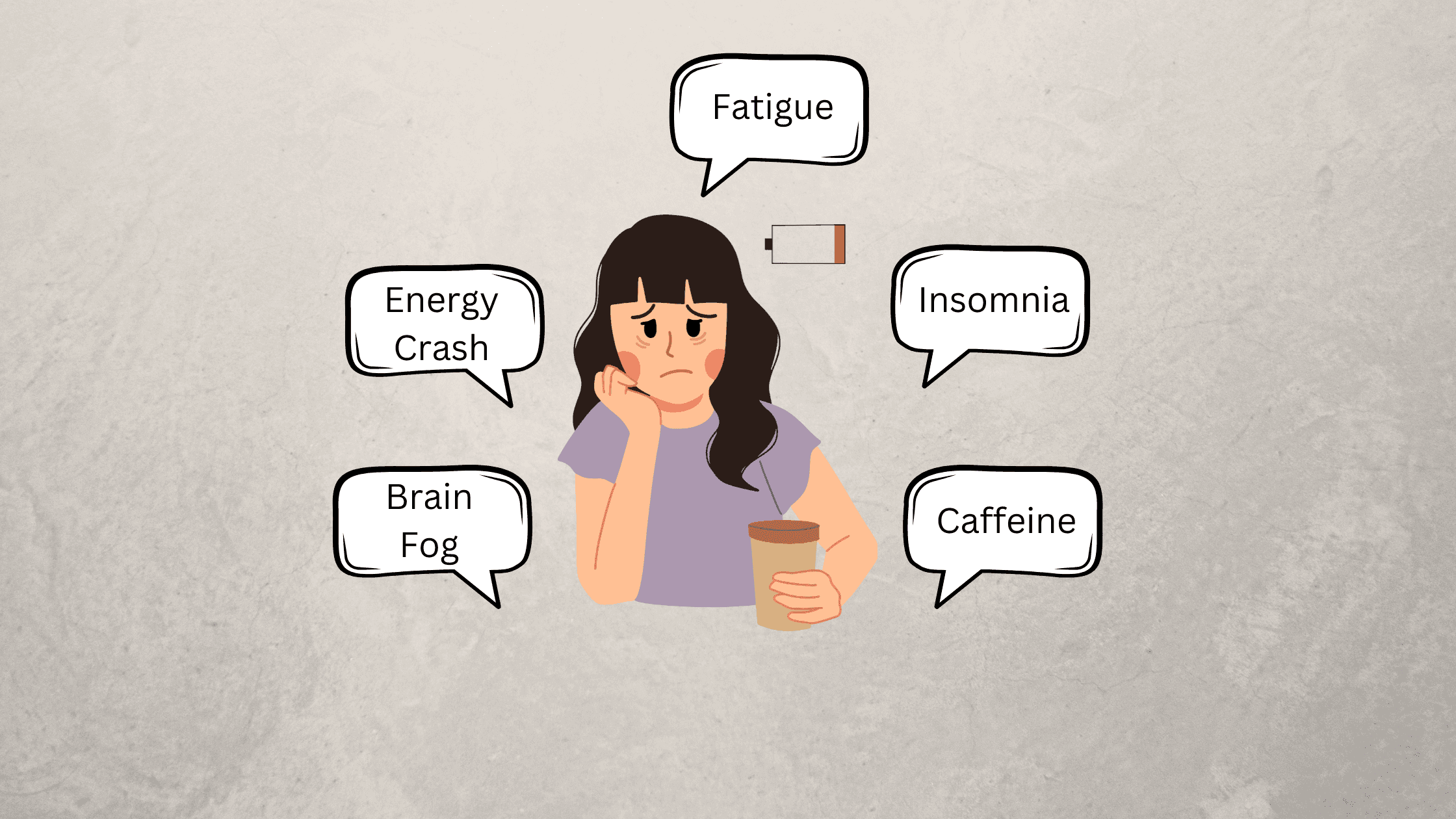


Boundaries That Breathe: How to Stop Feeling Selfish for Protecting Your Space
Boundaries That Breathe: How to Stop Feeling Selfish for Protecting Your Space
Vrinda Goel · May 03, 2025 · 3 min read
Vrinda Goel · May 03, 2025 · 3 min read
Let’s get one thing out of the way: setting boundaries doesn’t make you selfish. Or arrogant. Or cold-hearted. But if you’ve ever tried saying “no”, especially in a family or romantic relationship, you probably know that’s exactly how it can feel.
“You’ve changed.”
“You’re not as understanding anymore.”
“Why are you being so distant?”
Sound familiar?
In many cultures (hi, South Asian households), boundaries are often misunderstood. We grow up being told that family is everything, elders know best, and love means sacrifice. So when we try to reclaim a little space for ourselves, it can feel like a rebellion. Or worse, a betrayal.
But what if boundaries weren’t about pushing people away? What if they were about making relationships more breathable, for both sides?
Why Setting Boundaries Feels So Damn Hard
Because we were never taught how.
We were taught to obey, adjust, and understand everyone else’s emotions, but not to honour our own. We were taught to say yes even when we were crumbling, to prioritise harmony over honesty.
Add a little emotional guilt to the mix (“But they’re your parents”, “He’s just like that”), and suddenly your needs start to feel like a burden.
But here’s the raw truth:
Boundaries are not betrayals. They’re about protecting the parts of you that tend to shrink in silence.
Common Boundary Struggles (That Nobody Talks About)
1. Emotional Guilt with Parents
You want to take a break from a daily call, but then comes the “So now you don’t have time for your parents?” comment.
Boundaries with parents can feel like walking a tightrope of guilt and obligation. But they’re necessary to build an adult-to-adult relationship that’s based on respect, not control.
2. Losing Yourself in Romantic Relationships
You bend, you mould, you compromise. Before you know it, your life is curated around someone else’s needs, and your own needs have quietly left the chat.
3. Receiving Resistance
Let’s be honest: the people who complain the most when you set a boundary are often the ones who benefited most from you not having any.
You were available 24/7? Now you’re “cold.”
You always said yes? Now you’re “too rigid.”
Change shakes comfort zones, even if those zones were built on your burnout.
What Real-Life Boundaries Sound Like
Not Insta graphics. Not therapist posters. But actual words you can use:
“I can’t talk right now, but I’ll call you when I can give you my full attention.”
“I value your opinion, but I need to make this decision on my own, even if I make mistakes.”
“I know I used to say yes, but I’m learning to prioritise my energy now.”
Are they awkward? Sometimes. Do they work? Absolutely.
Final Thoughts
If you’ve ever felt guilty for choosing your mental health, exhausted from overgiving, or scared that setting a boundary will cost you a relationship, you’re not alone.
It’s hard. It’s heavy. And it’s holy work.
Because boundaries aren’t walls. They’re doors with locks you get to control.
And yes, people might say, “You’ve changed.”
You have. That’s growth.
If you’re ready to start setting boundaries without shame, and want support that holds space for it, book a session with me. Let’s do this work, together.
Let’s get one thing out of the way: setting boundaries doesn’t make you selfish. Or arrogant. Or cold-hearted. But if you’ve ever tried saying “no”, especially in a family or romantic relationship, you probably know that’s exactly how it can feel.
“You’ve changed.”
“You’re not as understanding anymore.”
“Why are you being so distant?”
Sound familiar?
In many cultures (hi, South Asian households), boundaries are often misunderstood. We grow up being told that family is everything, elders know best, and love means sacrifice. So when we try to reclaim a little space for ourselves, it can feel like a rebellion. Or worse, a betrayal.
But what if boundaries weren’t about pushing people away? What if they were about making relationships more breathable, for both sides?
Why Setting Boundaries Feels So Damn Hard
Because we were never taught how.
We were taught to obey, adjust, and understand everyone else’s emotions, but not to honour our own. We were taught to say yes even when we were crumbling, to prioritise harmony over honesty.
Add a little emotional guilt to the mix (“But they’re your parents”, “He’s just like that”), and suddenly your needs start to feel like a burden.
But here’s the raw truth:
Boundaries are not betrayals. They’re about protecting the parts of you that tend to shrink in silence.
Common Boundary Struggles (That Nobody Talks About)
1. Emotional Guilt with Parents
You want to take a break from a daily call, but then comes the “So now you don’t have time for your parents?” comment.
Boundaries with parents can feel like walking a tightrope of guilt and obligation. But they’re necessary to build an adult-to-adult relationship that’s based on respect, not control.
2. Losing Yourself in Romantic Relationships
You bend, you mould, you compromise. Before you know it, your life is curated around someone else’s needs, and your own needs have quietly left the chat.
3. Receiving Resistance
Let’s be honest: the people who complain the most when you set a boundary are often the ones who benefited most from you not having any.
You were available 24/7? Now you’re “cold.”
You always said yes? Now you’re “too rigid.”
Change shakes comfort zones, even if those zones were built on your burnout.
What Real-Life Boundaries Sound Like
Not Insta graphics. Not therapist posters. But actual words you can use:
“I can’t talk right now, but I’ll call you when I can give you my full attention.”
“I value your opinion, but I need to make this decision on my own, even if I make mistakes.”
“I know I used to say yes, but I’m learning to prioritise my energy now.”
Are they awkward? Sometimes. Do they work? Absolutely.
Final Thoughts
If you’ve ever felt guilty for choosing your mental health, exhausted from overgiving, or scared that setting a boundary will cost you a relationship, you’re not alone.
It’s hard. It’s heavy. And it’s holy work.
Because boundaries aren’t walls. They’re doors with locks you get to control.
And yes, people might say, “You’ve changed.”
You have. That’s growth.
If you’re ready to start setting boundaries without shame, and want support that holds space for it, book a session with me. Let’s do this work, together.
Let’s get one thing out of the way: setting boundaries doesn’t make you selfish. Or arrogant. Or cold-hearted. But if you’ve ever tried saying “no”, especially in a family or romantic relationship, you probably know that’s exactly how it can feel.
"You’ve changed.”
“You’re not as understanding anymore.”
“Why are you being so distant?”
Sound familiar?
In many cultures (hi, South Asian households), boundaries are often misunderstood. We grow up being told that family is everything, elders know best, and love means sacrifice. So when we try to reclaim a little space for ourselves, it can feel like a rebellion. Or worse, a betrayal.
But what if boundaries weren’t about pushing people away? What if they were about making relationships more breathable, for both sides?
Why Setting Boundaries Feels So Damn Hard
Because we were never taught how.
We were taught to obey, adjust, and understand everyone else’s emotions, but not to honour our own. We were taught to say yes even when we were crumbling, to prioritise harmony over honesty.
Add a little emotional guilt to the mix (“But they’re your parents”, “He’s just like that”), and suddenly your needs start to feel like a burden.
But here’s the raw truth:
Boundaries are not betrayals. They’re about protecting the parts of you that tend to shrink in silence.
Common Boundary Struggles (That Nobody Talks About)
1. Emotional Guilt with Parents
You want to take a break from a daily call, but then comes the “So now you don’t have time for your parents?” comment.
Boundaries with parents can feel like walking a tightrope of guilt and obligation. But they’re necessary to build an adult-to-adult relationship that’s based on respect, not control.
2. Losing Yourself in Romantic Relationships
You bend, you mould, you compromise. Before you know it, your life is curated around someone else’s needs, and your own needs have quietly left the chat.
3. Receiving Resistance
Let’s be honest: the people who complain the most when you set a boundary are often the ones who benefited most from you not having any.
You were available 24/7? Now you’re “cold.”
You always said yes? Now you’re “too rigid.”
Change shakes comfort zones, even if those zones were built on your burnout.
What Real-Life Boundaries Sound Like
Not Insta graphics. Not therapist posters. But actual words you can use:
“I can’t talk right now, but I’ll call you when I can give you my full attention.”
“I value your opinion, but I need to make this decision on my own, even if I make mistakes.”
“I know I used to say yes, but I’m learning to prioritise my energy now.”
Are they awkward? Sometimes. Do they work? Absolutely.
Final Thoughts
If you’ve ever felt guilty for choosing your mental health, exhausted from overgiving, or scared that setting a boundary will cost you a relationship, you’re not alone.
It’s hard. It’s heavy. And it’s holy work.
Because boundaries aren’t walls. They’re doors with locks you get to control.
And yes, people might say, “You’ve changed.”
You have. That’s growth.
If you’re ready to start setting boundaries without shame, and want support that holds space for it, book a session with me. Let’s do this work, together.
Copyright Healing Horizon 2024
Copyright Healing Horizon 2024





